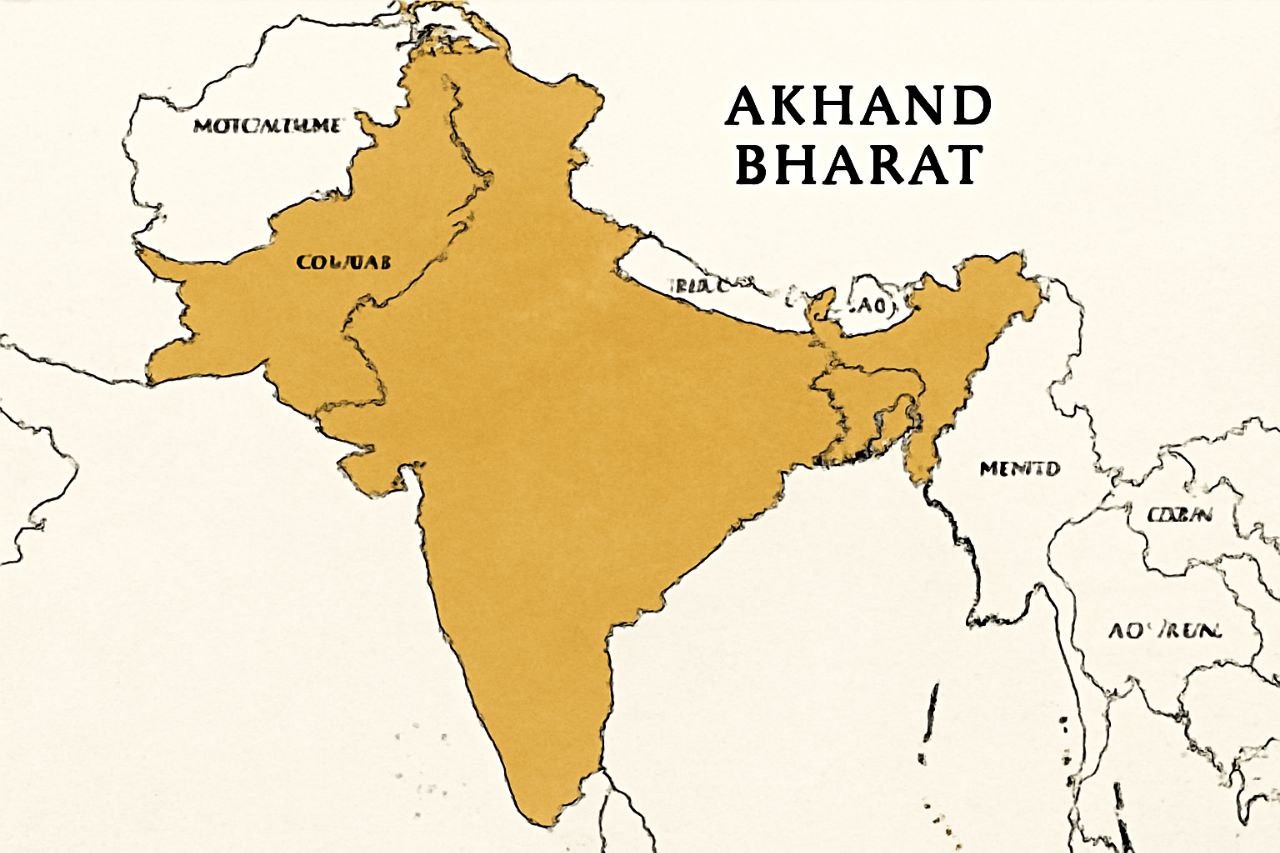Why India Must Reclaim Its Territories and Support a Free Balochistan: A Step Towards Regional Peace and Global Stability
 In the evolving geopolitical landscape of South Asia, the time has come for India to take bold and decisive action, to reclaim its territories under illegal occupation by Pakistan and to support the liberation of Balochistan, a region brutally suppressed and denied its right to self-determination. With Pakistan increasingly recognized as a hub of global terrorism, restoring rightful governance and sovereignty in these regions is not just a matter of national integrity for India, it is a necessity for regional peace and humanity at large.
In the evolving geopolitical landscape of South Asia, the time has come for India to take bold and decisive action, to reclaim its territories under illegal occupation by Pakistan and to support the liberation of Balochistan, a region brutally suppressed and denied its right to self-determination. With Pakistan increasingly recognized as a hub of global terrorism, restoring rightful governance and sovereignty in these regions is not just a matter of national integrity for India, it is a necessity for regional peace and humanity at large.Pakistan-Occupied Jammu and Kashmir (PoJK): A Betrayed Legacy
India’s claim over Jammu and Kashmir, including Gilgit-Baltistan and so-called "Azad Jammu and Kashmir" (AJK), is grounded in history, law, and morality. On October 26, 1947, the Maharaja of Jammu and Kashmir signed the Instrument of Accession, legally integrating the princely state into the Union of India. However, Pakistan invaded and illegally occupied parts of the territory, a situation that continues to this day.
The people of PoJK and Gilgit-Baltistan suffer from political repression, media blackout, lack of infrastructure, and no constitutional rights under Pakistan’s regime. India, as the rightful sovereign, must reassert its territorial integrity and restore democracy and dignity to these people.
Balochistan: A Struggle for Freedom and Identity
Balochistan was an independent entity known as the Khanate of Kalat until March 1948, when Pakistan forcefully annexed it in clear violation of the Baloch people’s will. Since then, Balochistan has endured decades of military oppression, enforced disappearances, economic exploitation, and human rights violations.
Baloch nationalists have long sought freedom from Pakistani occupation, and their struggle has intensified in recent years. India, as a regional power committed to democratic values, has a moral obligation to support the Baloch people in their quest for sovereignty.
Pakistan: The Epicenter of Terrorism
Pakistan has become synonymous with terrorism, with state-sponsored terror groups like Lashkar-e-Taiba, Jaish-e-Mohammed, and others operating openly under the patronage of its intelligence agency, the ISI. These groups have not only targeted India, including the horrific 26/11 Mumbai attacks, but have also destabilized Afghanistan, Iran, and even China.
By continuing to allow terrorism to flourish within its borders, Pakistan has become a threat to regional and global peace. Its collapse or restructuring is increasingly seen as necessary by strategic thinkers around the world to end the spread of jihadist extremism.
Strategic and Moral Imperatives for India
India, with its growing global influence, military capability, and diplomatic reach, is in a unique position to:
# Reclaim PoJK and Gilgit-Baltistan, restoring the complete map of Jammu and Kashmir as per Indian sovereignty.
# Extend support to Baloch freedom fighters, diplomatically and morally, in international forums and through humanitarian aid.
# Expose Pakistan’s duplicity on the global stage and lead an international campaign to label it as a state sponsor of terrorism.
These actions would not only restore regional stability, but also boost India’s national security, secure its western front, and protect the rights of millions of oppressed people.
Peace Through Justice: A Vision for the Future
Critics may argue that such actions risk escalation. But true peace is built on justice. Allowing an oppressive regime to continue its illegal occupation and state - sponsored terrorism only prolongs suffering and chaos.
By reclaiming its own land and helping a suppressed nation like Balochistan gain freedom, India would set a precedent for justice-driven geopolitics. It would demonstrate that human rights, national sovereignty, and peace are not just ideals, but enforceable realities.
A Call to Conscience
The time for strategic silence is over. The world must no longer look away while Pakistan harbors terrorists, suppresses indigenous populations, and occupies lands it has no legal or moral right to.
India must rise to the occasion, reclaim its territories and support a free Balochistan.
It is a step toward a safer, freer, and more humane South Asia.
Peace will prevail, not through appeasement, but through rightful action.
"When justice is denied, freedom is suppressed, and terror is sheltered, silence becomes complicity. It is not war that threatens peace, it is the refusal to stand for what is right." ~ Adarsh Singh
Thu Apr 24, 2025
 In the evolving geopolitical landscape of South Asia, the time has come for India to take bold and decisive action, to reclaim its territories under illegal occupation by Pakistan and to support the liberation of Balochistan, a region brutally suppressed and denied its right to self-determination. With Pakistan increasingly recognized as a hub of global terrorism, restoring rightful governance and sovereignty in these regions is not just a matter of national integrity for India, it is a necessity for regional peace and humanity at large.
In the evolving geopolitical landscape of South Asia, the time has come for India to take bold and decisive action, to reclaim its territories under illegal occupation by Pakistan and to support the liberation of Balochistan, a region brutally suppressed and denied its right to self-determination. With Pakistan increasingly recognized as a hub of global terrorism, restoring rightful governance and sovereignty in these regions is not just a matter of national integrity for India, it is a necessity for regional peace and humanity at large.